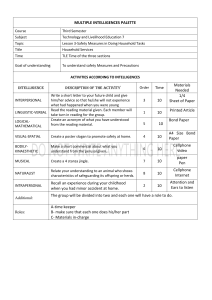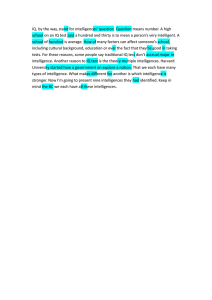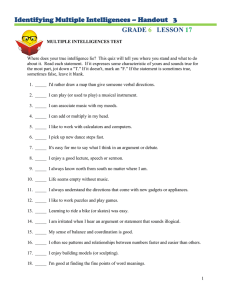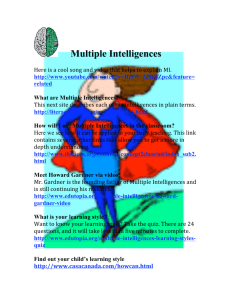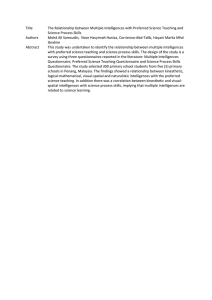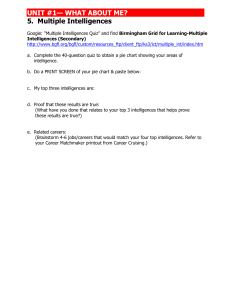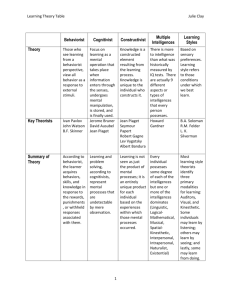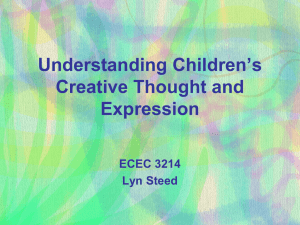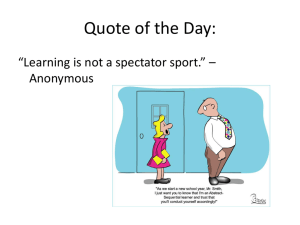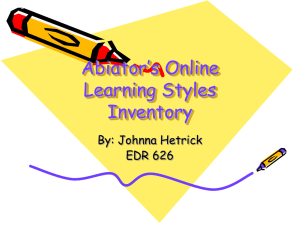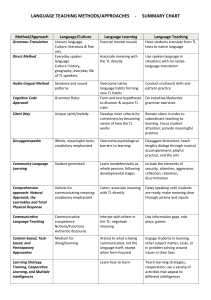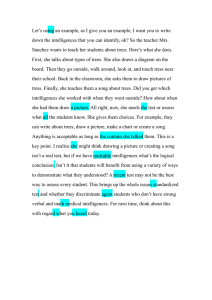Bragg-theorytable
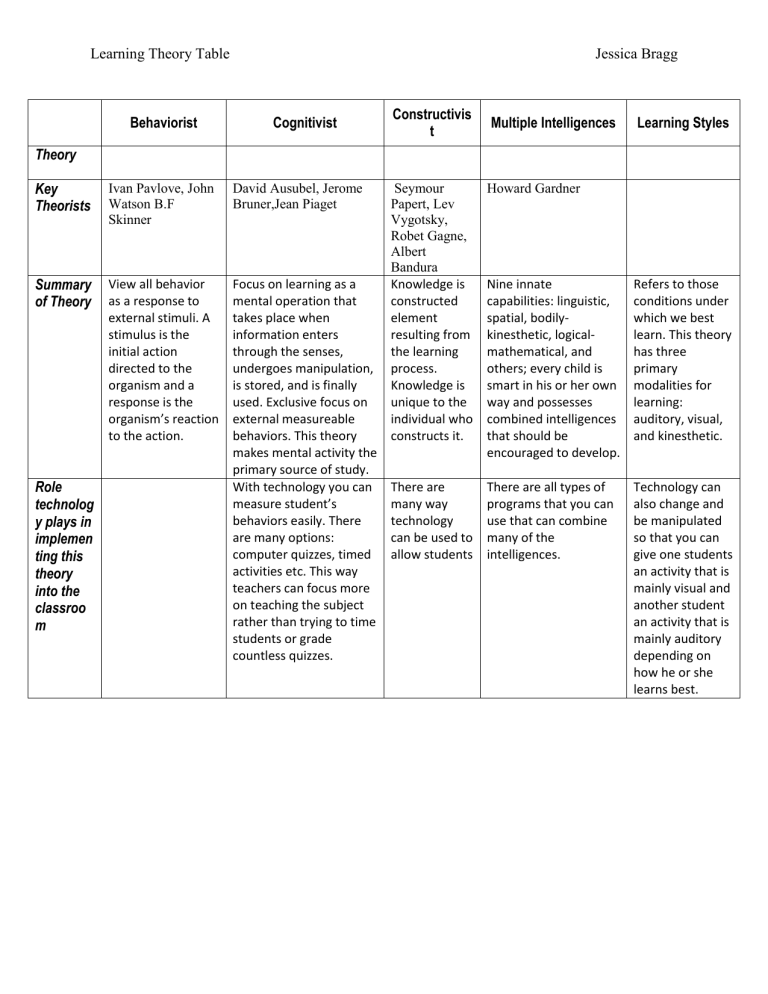
Learning Theory Table Jessica Bragg
Theory
Behaviorist Cognitivist
Constructivis t
Multiple Intelligences Learning Styles
Key
Theorists
Summary of Theory
Role technolog y plays in implemen ting this theory into the classroo m
Ivan Pavlove, John
Watson B.F
Skinner
David Ausubel, Jerome
Bruner,Jean Piaget
View all behavior as a response to external stimuli. A stimulus is the initial action directed to the organism and a response is the organism’s reaction to the action.
Focus on learning as a mental operation that takes place when information enters through the senses, undergoes manipulation, is stored, and is finally used. Exclusive focus on external measureable behaviors. This theory makes mental activity the primary source of study.
With technology you can measure student’s behaviors easily. There are many options: computer quizzes, timed activities etc. This way teachers can focus more on teaching the subject rather than trying to time students or grade countless quizzes.
Seymour
Papert, Lev
Vygotsky,
Robet Gagne,
Albert
Bandura
Knowledge is constructed element resulting from the learning process.
Knowledge is unique to the individual who constructs it.
Howard Gardner
Nine innate capabilities: linguistic, spatial, bodilykinesthetic, logicalmathematical, and others; every child is smart in his or her own way and possesses combined intelligences that should be encouraged to develop.
There are many way technology can be used to allow students
There are all types of programs that you can use that can combine many of the intelligences.
Refers to those conditions under which we best learn. This theory has three primary modalities for learning: auditory, visual, and kinesthetic.
Technology can also change and be manipulated so that you can give one students an activity that is mainly visual and another student an activity that is mainly auditory depending on how he or she learns best.
